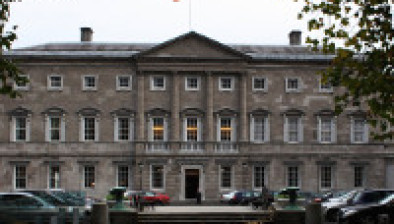NI High Court: Judge overturns decision to revoke Iraqi Kurd’s British passport

Northern Ireland’s High Court has overturned a decision to revoke the British passport of an Iraqi Kurd where his reasons for using an alias in his citizenship application were ignored.

About this case:
- Citation:[2022] NIQB 1
- Judgment:
- Court:High Court
- Judge:Mr Justice Adrian Colton
The applicant, TS, was an Iraqi Kurd and a British citizen who resides in Belfast. He sought to challenge by way of judicial review a decision made by Her Majesty’s Passport Office (HMPO) on 3 December 2020 by which his British passport was revoked.
The court vitiated the decision to revoke the applicant’s passport on grounds of procedural unfairness, where the applicant’s explanation for using an alias was neither rejected nor followed up.
Background
TS first entered the UK in 2002 and claimed asylum on 7 May of that year. He applied in a different name, Ibraham Rashid Ali, due to his concern about his personal safety, stating:
“The reason why I did not use my true name is that I was afraid that if my real identity was disclosed, this would lead to a real risk of harm to my own personal safety and/to my family who were back in Iraq at that time”
He was refused asylum and granted exceptional leave to remain on 11 June 2002. That was valid until 11 June 2006. From 2006 onwards he was granted indefinite leave to remain.
In July 2008 he applied for naturalisation as a British citizen in the name of Ibraham Rashid Ali. He was granted British citizenship on 16 July 2008. A British passport was issued to the applicant on 22 September 2008 in the name of Ibraham Rashid Ali. He married his wife in 2013 and his daughter was born in Iraq on 17 August 2015.
On 15 October 2015, the applicant changed his name in the UK by deed poll to TS, which he says is his true identity. On 27 October 2015, a second British passport was issued to the applicant in the name of TS.
Request for an interview
On 13 February 2020, the applicant’s case was referred to Elizabeth Larson to investigate potential identity fraud committed by the applicant. On that date, Ms Larson wrote to the applicant at an address in Swindon and emailed him a copy of a letter advising him that it was necessary for him to attend an interview under caution.
The letter advised that an investigation was being conducted regarding criminal offences related to fraud, false representation and the Identity Documents Act 2010 as it was suspected that the applicant “may have provided false details when you naturalised as a British citizen”.
The letter further advised that Ms Larson would like to interview the applicant in connection with this criminal investigation and that the interview would be conducted on a formal basis in accordance with the Police and Criminal Evidence (PACE) Act 1984 and that it would be recorded on CD.
On 22 September 2020, Ms Larson reiterated the request for the applicant to provide a statement and his passport, and stated that, if a reply was not received by 10 October 2020, “we will consider the revocation of his British passport”.
In response, TS wrote a letter to EL, explaining the reasons for his different identity, which included the following:
“At that point, the Ba’athiste regime had fallen and Saddam Hussein having being deposed and executed in April 9, 2003, I consider that the issue of reprisals to my family and me was no longer a concern, and applied to change my name back to the original of [TS]”.
On 3 December 2020, the respondent granted a British passport to TS’s daughter, valid from 3 December 2020 to 3 December 2025.
On the same date, Ms Larson emailed the applicant and his solicitor advising that his British passport had been revoked. This is the impugned decision.
The applicant’s grounds
The applicant argued that the revocation decision was vitiated by several breaches of public law, including breaches of procedural fairness, irrationality, inconsistency, breach of expectation based on the respondent’s passport policy, a lack of sufficient cogent reasons and a breach of the applicant’s human rights.
The procedural fairness argument was based on a failure to interview the applicant. It was argued that an interview was anticipated from the outset as an essential element of the process. It was submitted that an interview was a crucial part of the investigation in relation to the revocation decision.
It was alleged that the decision was inconsistent because, by granting a passport to the applicant’s daughter, the respondent accepted his true identity as TS.
The breach of human rights was based on the grounds of a failure to interview the applicant which was described as “the very centre piece of the respondent’s first approach in its letter dated 20 February 2020”.
The respondent claimed that the applicant had been given an opportunity to explain his version of events, which was done by way of the short statement he made on 5 October 2020. The absence of an interview avoided his immediate exposure to any criminal charge and could therefore be viewed to his advantage.
Decision
Under the heading of procedural fairness, any alleged breach of the applicant’s human rights under Article 6 and 8 of the European Convention on Human Rights turned on the question of the extent of the investigation carried out.
The court found that there was nothing in the correspondence to suggest that Ms Larson had committed to an interview for the purposes of her decision in relation to the passport.
However, the court considered that procedural fairness required the respondent to specifically address the reasons put forward by the applicant for the use of the original identity when he obtained his first passport and his explanation for the subsequent application.
It seemed to the court that an interview would have been an obvious and logical way to test the explanation that was put forward by the applicant on 5 October 2020. There was nothing in the decision letter of 3 December 2020 which indicated that the respondent had engaged or considered the explanation provided by the applicant.
The decision maker did not say that the explanation had been rejected, and they did not follow up the explanation by way of further questions, either in writing or by way of interview. In fact, there was no reference at all in the decision to the explanation which was specifically sought.
The court also noted that there is no right of appeal from such a decision. In those circumstances, the court came to the conclusion that there had been a significant procedural unfairness in the way the decision was taken and in the manner in which it was communicated to the applicant.
The procedural unfairness was sufficient to vitiate the decision of 3 December 2020. Accordingly, the court quashed the decision of 3 December 2020 and directed that the respondent make a fresh decision by a different decision maker.









